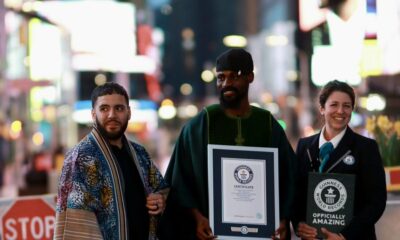News
For Tunde Onakoya, Chess in Slums Africa is Beyond Making a Pawn a Queen; it’s about Redefining Education Outside a Classroom
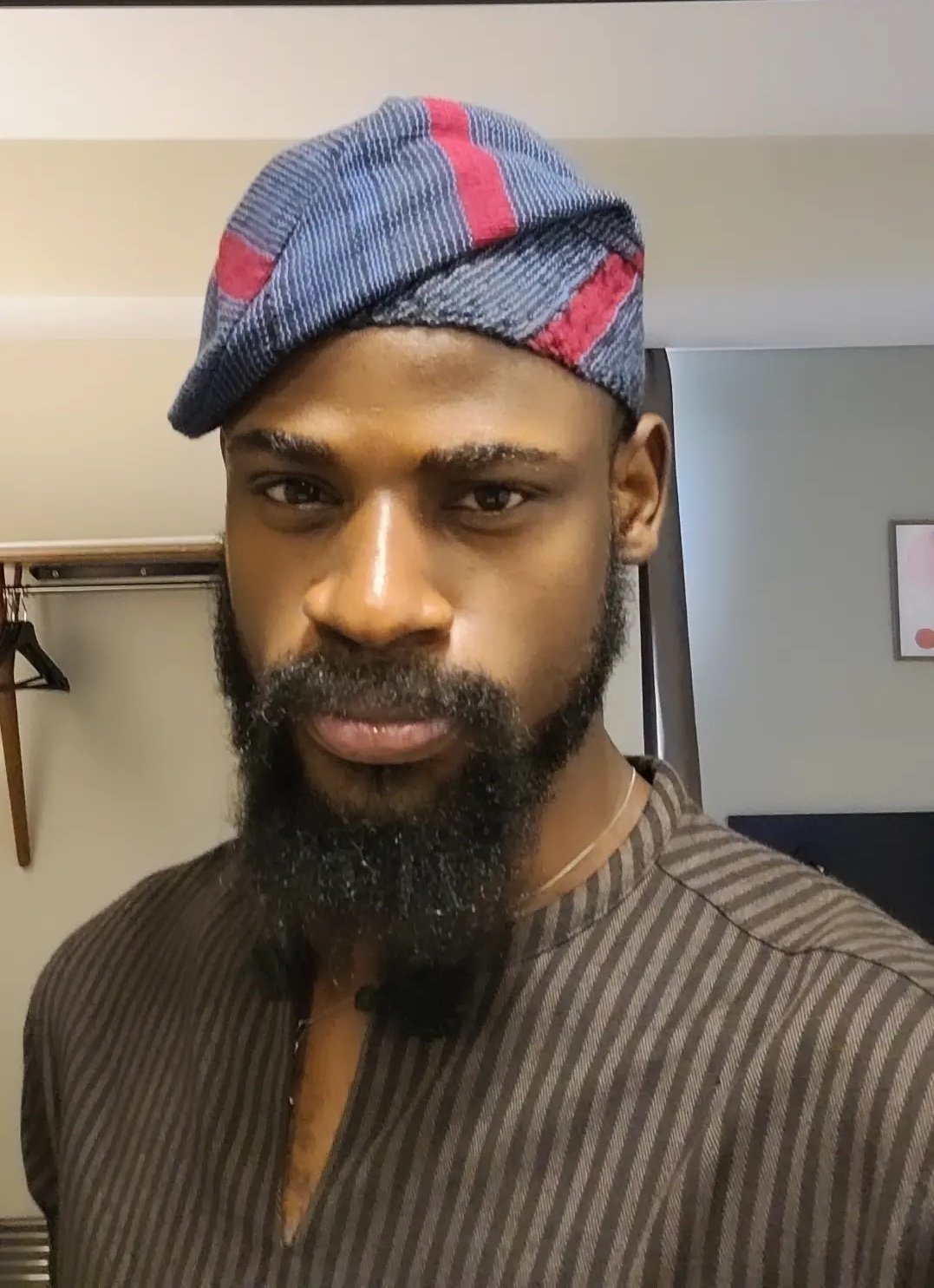
Photo from @Tunde_OD/Twitter
The greatest miracle of chess is in the innate ability of the pawn, which is the least valuable piece to become a queen, the most powerful piece in the chessboard. This analogy deeply reflects the truest essence of what Chess In Slums Africa is doing: every child, irrespective of the background, has the capacity to become powerful through the game of chess.
In 2015, when Tunde Onakoya graduated from the university, he knew he wanted to do one thing: teach the game of chess to children. After he visited the Majidun community and saw lots of children living in very poor conditions, his dreams moved beyond just teaching them to improving the quality of their lives and giving them new dreams. After several successful attempts to teach them the game of chess that saw the increase of children from 10, 20, 35, and then about a hundred in the Majidun community, he knew there was no turning back: he had found his path.
On the 1st of September, 2018, Chess In Slums Africa was (officially) born.
Today, the Chess In Slums team have spread their impact beyond Majidun into Makoko, Oshodi and even Burkina Faso. They have also trained over 500 children so far, taking them from zero knowledge of the game to the intermediate level, and sponsored a hundred children to school on academic scholarship support.
Teaching Chess in Slums
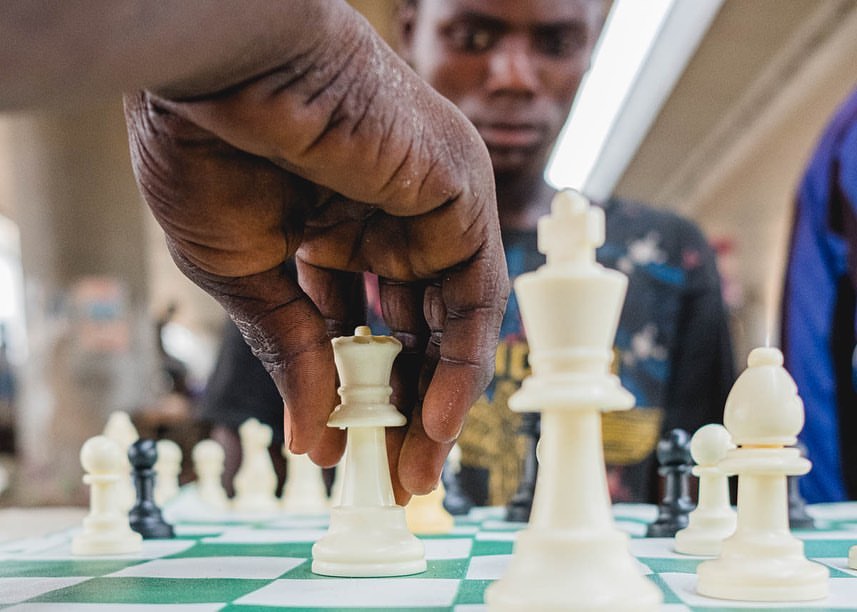
Photo by @chrisonahofficial
Chess In Slums is a non-profit organisation that uses the game of chess as a framework to give education to children in really impoverished communities. This NGO has become a revolution that could solve the education crisis and literacy problem in the country and beyond. But there are currently more than 10 million out-of-school children in Nigeria who need urgent and optimal attention. How does Chess In Slums decide who gets more attention and when?
“We have our target demographic: children in slum communities. But at the same time, we can’t do it for everyone. So whenever we go to a new community, we set out the number that we want to work with. For Oshodi, we set out to do 50. We ended up doing 51. Actually it was even 20. We go to the community and we profile the children, then do a vulnerability assessment to know the children that are the most vulnerable: the ones that are orphans; the ones that have spent the longest time on the streets; the younger one; the girls – we prioritise some of the girls too because they are the most vulnerable especially in certain kind of environment. There are a lot of children in poverty, but there are some that are a lot worse, like it’s horrible. 99% of the kids in Oshodi don’t have a home; they sleep there under the bridge. There are some of them that have parents, but they ran away from home, while there are some of them that are orphans, they don’t have anybody, they don’t have any family. The ones that are most vulnerable, have the most struggles, and the most difficulty are the ones we prioritise. We also profile the children we want to work with between the ages of 6 to 20. Then we create a database for them – their name, age, aspiration, dream, talents, everything about them, we want to know everything about them. It helps us to understand how best to support their dreams,” Tunde says.
You cannot help a vulnerable child and walk away; there has to be a sustainability plan in place, and to be able to create that sustainability plan, you need to be able to listen to them to understand their peculiar struggles from a very intimate point of view. “We treat every child distinctively, so we have that personal connection with each one of them before adding them to our program. For us, chess is the focal point; it is an educational tool,” Tunde continues. “Our programs are divided into 3 phases: the beginner phase, intermediate and master. As they progress through the levels, from zero knowledge of the game through the levels, we have a monitoring and evaluation system and we use the chess-kid curriculum, which is the best curriculum in the world for children to learn chess and compete.”
The Impact Chess In Slums Africa Has Made So Far
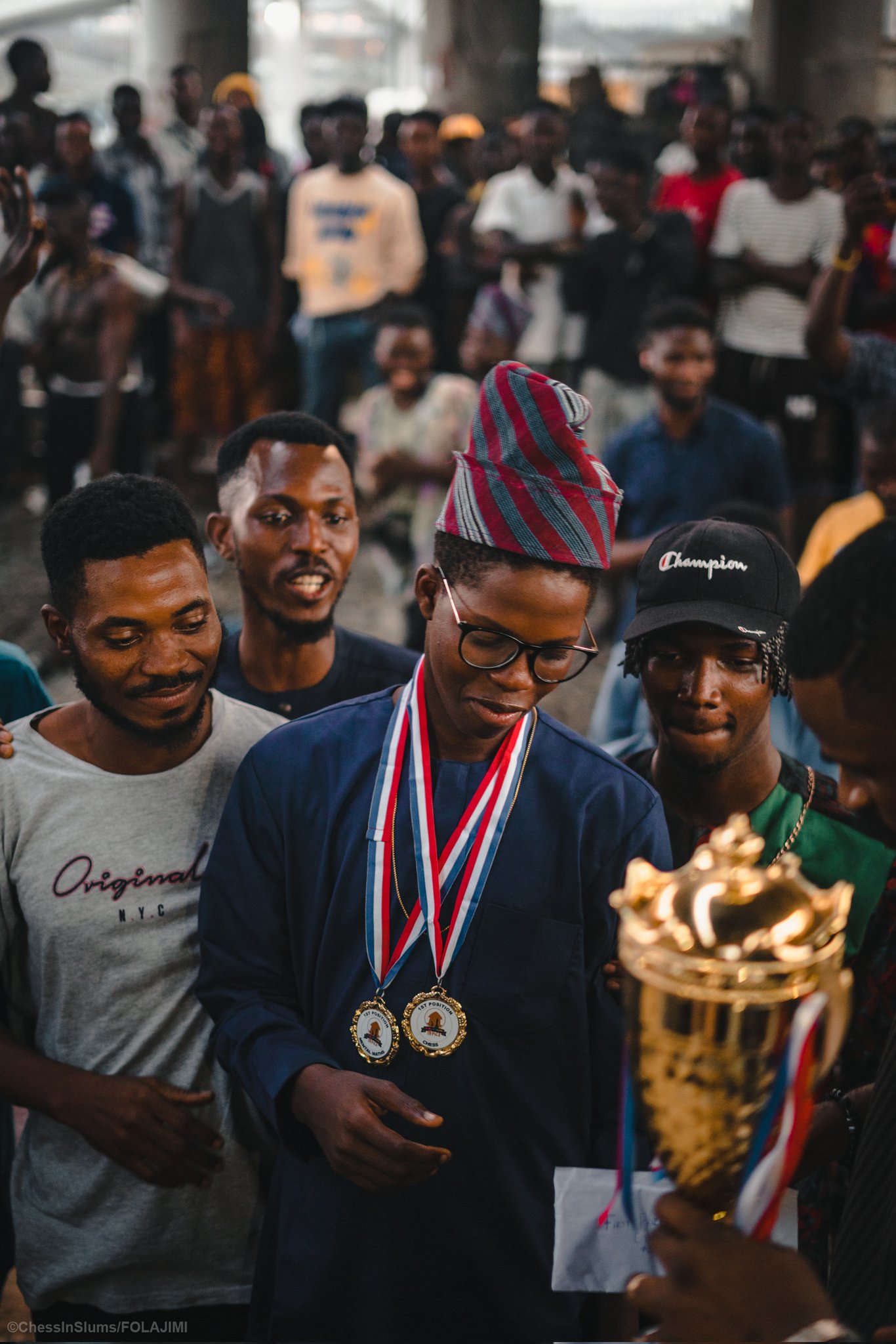
Photo from @Tunde_OD/Twitter
For Tunde, the Chess In Slums team and the kids, chess isn’t just a game, and its impact is beyond making a pawn a queen – it is redefining education beyond the four walls of the classroom.
“When you see a year-old child sitting down for one hour to play chess, it’s not just about chess, it’s about what it teaches: patience, focus, high-level concentration, critical thinking. So they’re learning all those disciplines through chess,” Tunde says, “Chess in itself is a fun game that will avail them a lot of opportunities, but then, it’s an educational resource. For me, education is more like the capacity for thought, for the children to be able to think independently. That is why we are giving them chess as a way for them to be educated in a different way, to learn how to think for themselves, not teach them what exactly to think but how to think for themselves, to come up with solutions for problems.”
“Chess is a gateway to other opportunities like proper education, like technology, healthcare and all of that; it’s all-encompassing. Chess for us is just a vehicle, it’s a tool that takes them from zero knowledge of the game to children that now have capacity, that are more intellectually inclined. I believe education shouldn’t just be limited to the four walls of the classroom, especially for the target demography of the children we work with. Like we work with children on the street in ghetto areas, these children who do not have access to education, and our conventional educational system will never be able to capture children like that, so using chess as an alternative means to engage their mind.”
With 4 communities reached, over 36,000 hours of chess training, $400,000 in academic scholarships so far, 200 scholarships, and over 1000 children enrolled, Chess In Slums Africa has gone beyond engaging the minds of children living in slums, they are giving the children something bigger, something better: hope for a brighter future.
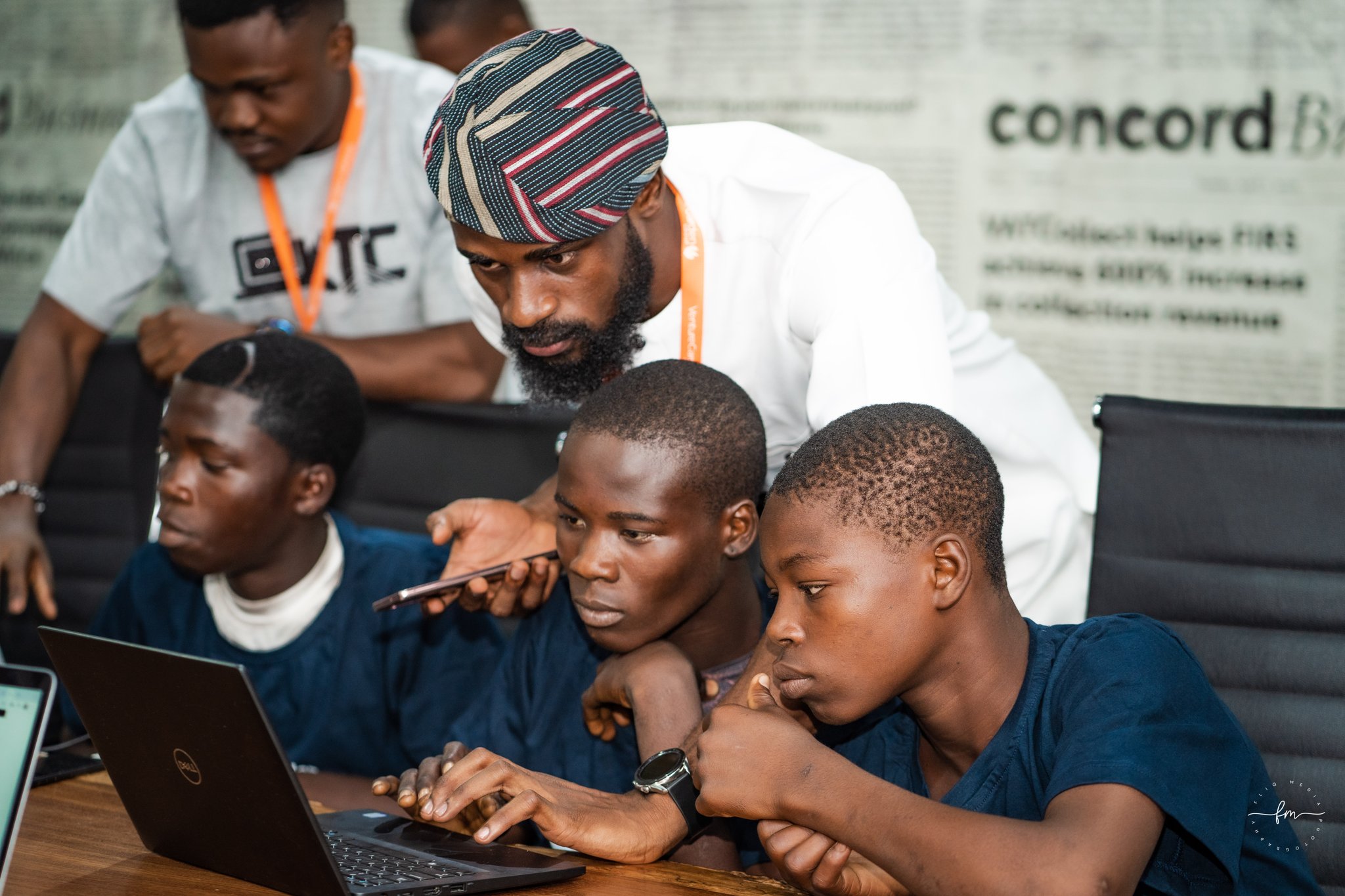
Photo from @Tunde_OD/Twitter
“We’ve taken over 500 children so far from zero knowledge of the game to the intermediate level, and we’ve been able to sponsor a hundred children to school on academic scholarship support. So far, we’ve impacted 4 communities: Majidun, in Ikorodu, then we went to Makoko. From Makoko, we went to Kaya, an orphanage in Burkina-Faso – we partnered with the home to set up a chess academy there for them, and we were able to train about 50 children, then to Oshodi under-bridge. Our vision is to reach a million children within the next 5 to 10 years.”
Education is beyond the four walls of a classroom, and people say it never ends. But with millions of out-of-school children in Nigeria, providing ample education that is inclusive of very varied intellectual capabilities, financial and social status, has proven to be a herculean task for the government. Chess In Slums Africa is bridging this gap, and now, over 86% of Kids enrolled in Chess In Slums Africa remain in school.
“We put the children in our academy who cannot afford education in school. We sponsor their education, and take record of their academic performance in school. Another problem is that children go to school but don’t stay in school because they don’t see the value of learning and then when it becomes difficult they leave. But children in our academy now understand the value of learning, so more of them stay in school. We have that system that also monitors their progress in school, and in our own program too – how they run through the levels, and how they progress over time. Because we have tests to evaluate their tournament participation and progress based on our curriculum, a lot of children have won tournaments, scholarship opportunities, and all of that.”
Over the last few months, Chess In Slums Africa has partnered with ChessKid, Chessable, Chess.com, Lufthansa, Lazerpay, MedPlus and, more recently, a partnership with KidsthatcodeNG will help the children learn coding. They also launched the sales of the Chess Fìlà as part of their Global fundraising campaign to raise money to build a chess academy.
Recently, Tunde Onakoya won The Future Awards Africa prize for community action.
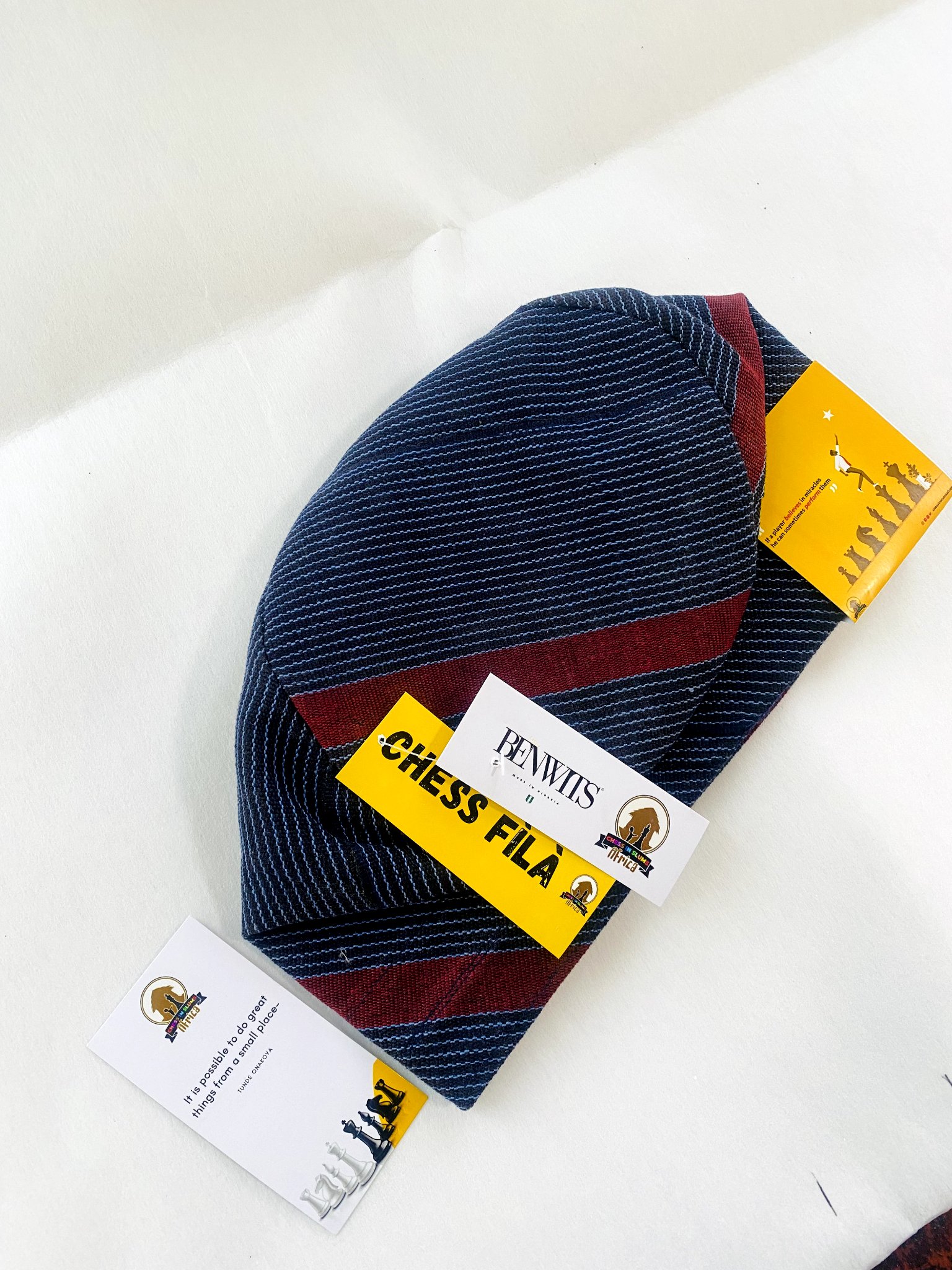
Photo from @Tunde_OD/Twitter

Photo from @Tunde_OD/Twitter
Overcoming Hurdles and Bumps
In a world that is constantly consumed by so many people, nobody really pauses to truly see people living in underserved communities. Organisations like Chess In Slums initiatives do more than simply rescuing kids; they rekindle hope in humanity. Because of Chess In Slums, there are now new conversations about places like Oshodi Under-bridge that have been written off for years. Tunde knew this day would come.
He says, “I mean from the very onset, I already knew that this was what I wanted to do for the rest of my life. I knew it was going to be a matter of time – whether it was going to be 10 years, 15, or 20 years, I didn’t know when, but I knew it was going to happen eventually.”
But like every founder, Tunde’s journey has been fraught with bumps and hurdles, especially when COVID-19 hit.
“The COVID-19 era was particularly difficult because we couldn’t even train the children anymore – things were bad for everybody, and we couldn’t even sustain the program. I lost my job because I was teaching in schools and schools were closed. There was just no way to make income and it was tough. We started thinking about innovative ways to still do what we do, COVID-19 affected everyone, and everything. We started thinking about going virtual and started writing emails to people. We got iPads for the children, and lots of support from the international chess community. That was when we got the partnership with Chesskids, so we didn’t have to always be with the children anymore; we could now get them iPads and they could now play and continue training and competing virtually.”
Most of the parents of the children lost their petty trades, and they were always calling us for financial aid. At the end, we knew it would trickle down to the children, so we did a fundraiser called ‘Checkmating COVID-19’ to raise money to buy food items for the families of the children that we trained. The thing is with all the challenges, we always found a way to come up with solutions to just keep it going.”
Chess Beyond Borders
Chess In Slums Africa is slowly but steadily spreading beyond the borders of Nigeria. “The trip to Burkina-Faso was one we did because we wanted to see what was possible beyond Nigeria. We wanted to go to Africa because this dream is not just for Lagos, Nigeria, it’s for Africa. So we wanted to go and see what was possible; could we replicate the same model in other countries in Africa? People in Burkina Faso don’t even speak English, they speak French but we were still able to run our programs for them and successfully set up a chess learning centre, so yes, it was possible.
Beyond Africa, Chess In Slums is receiving wide acclamation: people are more enthused over the strides made so far and are better inclined to make donations and initiate partnerships. And now, there’s hope for many more children.
“The short term goals for us right now is to raise more money,” Tunde says, “We want to raise a million dollars, go to more African countries, reach 5,000 children and sponsor a thousand children to school on scholarship support this year. We want to go to 10 more communities this year, we’ve done 4 so far.
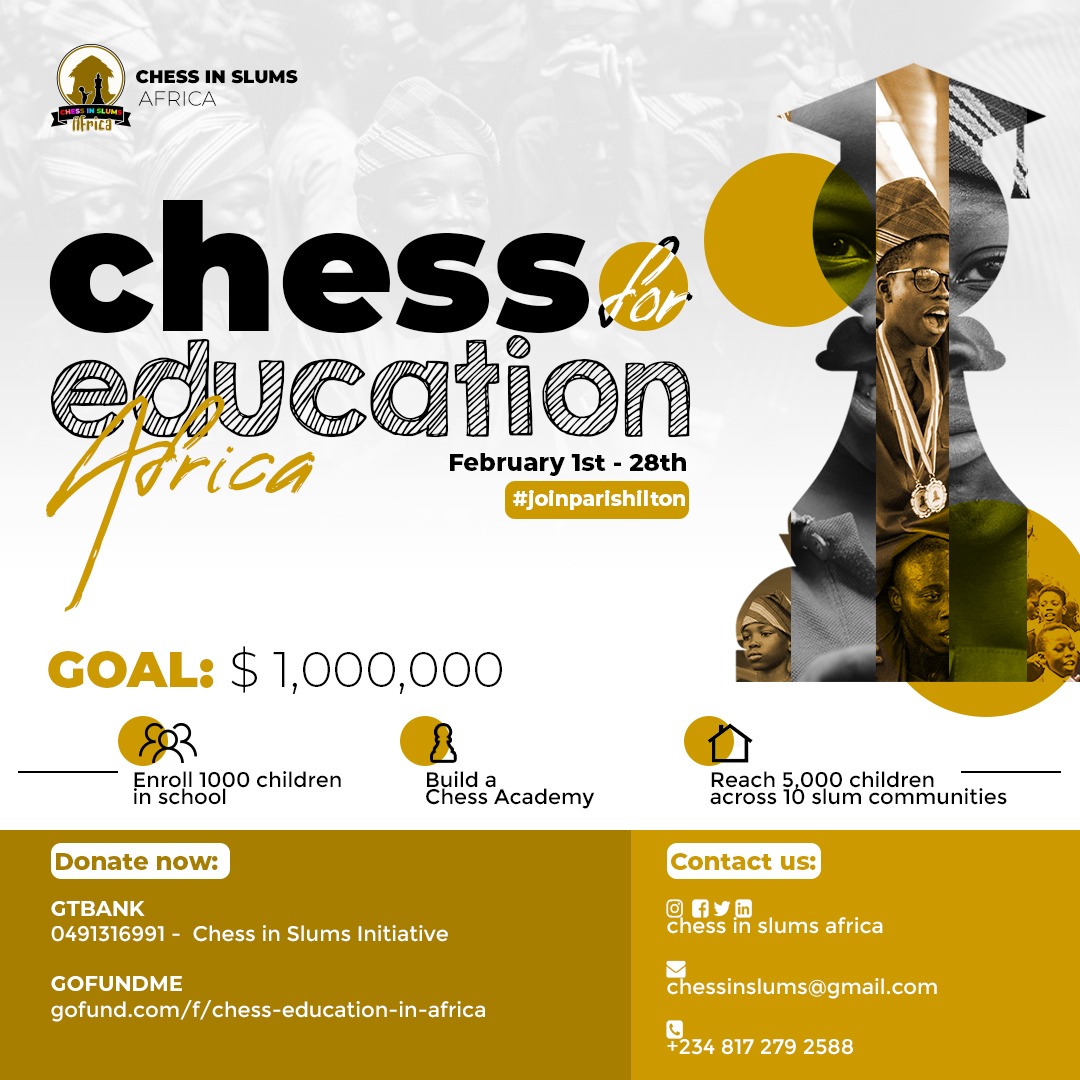
Photo from @Tunde_OD/Twitter
Long term, we want to build the chess academy. This Oshodi under bridge project taught us something very important – that there are children who have it worse. We’ve been going to the communities with children that actually had parents, or at least they have a home, even if it’s dilapidated. But there are children in Oshodi and so many other slums who have no parents or roofs over their heads. There needs to be a safe space for them to learn. A place you call home. That’s why we want to build an academy and we want to make it the biggest chess academy in the world. It will have a home facility, an accommodation facility for the children, street children, and orphans to stay. It will be a chess academy, but it won’t just be chess, we want to reimagine education in a different way.”
Beyond reimagining education in a different way, today, many of the children in the Chess in Slums foundation are well on their way to becoming kings and queens.
“Anytime we start with a child, we see them as pawns on a chess board. But then, that is not all that there is to them; they have power to become much more valuable, the only difference is access. So we give them that access, we give them information, we give them education, so they can create the future that they want for themselves and become the queen, the most powerful piece on the chessboard.”
**
IMPACTER by Global Citizen x BellaNaija is throwing the spotlight on Africans making an impact in their countries and beyond. From mitigating the effects of climate change, to providing mental care, building innovative solutions to COVID-19, fighting global poverty, and providing education for all, these impacters are building smart solutions to creating a world that is safe, healthy and equal for all.
As the world strives to recover from the impact of COVID-19, IMPACTER will follow the journey of these change-makers whose projects are not just changing the lives of people, but are also creating a world of equity and equality.


